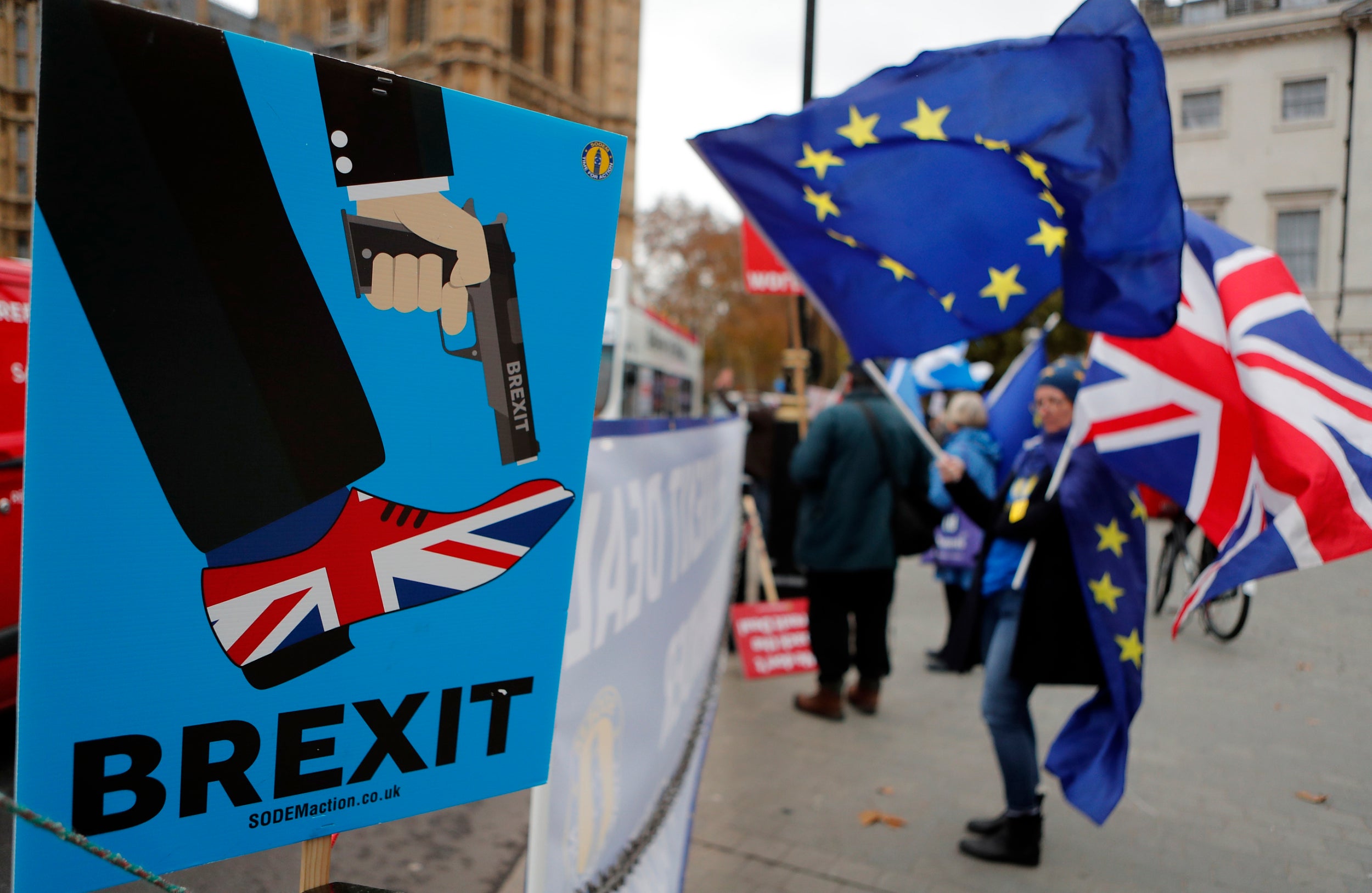Everything that is wrong with the prime minister’s proposed Brexit deal is also wrong with Norway Plus
I voted for it in the Lords when it looked like a port in the storm. But the ship has now sailed on and there is no turning back


As undeliverable promises collide with improbable parliamentary arithmetic, MPs are searching frantically for a way out of Brexit’s burning building. For some, the idea of “Norway Plus” now looks like a potential bolthole.
As an example of a country which is not a member of the European Union but which, as part of the European Economic Area (EEA), clings closely to its economic structures, some politicians see Norway – with the addition of a customs union – as a compromise between Leavers and Remainers.
But, as is spelled out in a new report by the People’s Vote campaign, MPs would be making a big mistake if they were tempted by this destination at such a late stage.
The first thing to say about Norway Plus is that it is politically unrealistic. Both Theresa May and Jeremy Corbyn have consistently opposed it. MPs have had many chances to vote for EEA membership and the customs union, at a time when it could have been a viable option, and they wholeheartedly rejected it. I voted for it in the Lords when it looked like a port in the storm. But the ship has now sailed on and there is no turning back.
Crucially, even if both the UK parliament and the EU were to agree to seek a Norway Plus agreement it would not eliminate the need for the Irish border backstop. And for the large number of MPs it is the backstop that is the real sticking point in parliament.
On the substance of the idea, I accept Norway Plus would at least avoid some of the immediate economic damage and lost trade or investment from Brexit. But everything else that so many MPs find wrong about the prime minister’s proposed Brexit deal is also wrong about Norway Plus.
We would become permanent rule takers, out of Europe but ruled by Europe. We would give up our vote, voice and veto at the table where the rules are made. This would be unacceptable for a country of our status and an economy of our size.
Far from “taking back control” as was promised in the 2016 referendum, Norway Plus would mean a massive transfer of sovereignty. At present, we are in the room – leading, shaping and reforming the rules of the single market. This would be ended. Yes, the UK would leave the direct jurisdiction of the European Court of Justice, but we would instead sign up to the EFTA court, which follows ECJ rulings to ensure a level playing field between EU and non-EU EEA members. No amount of muscle-flexing by the UK would change this.
Proponents of Norway Plus, who include many of those closest to Michael Gove, try to make this offer look more attractive by pretending it is a state of affairs which would allow us to have our cake and eat it. They claim their scheme would allow the UK to control immigration, pay less into the EU budget and would be easy to negotiate. Short of promising it can cure baldness, they could hardly be more disingenuous.
The Norway Plus option would not end free movement of people to and from the EU. Although EEA countries ostensibly have the right to suspend freedom of movement if they are experiencing “serious economic, societal or environmental difficulties,” only once has this ever been deployed – and tiny Liechtenstein can hardly be compared to the UK. Crucially, by giving up our seat in the EU, the UK would be sacrificing our ability to shape and reform the rules on how free movement operates.
Nor would there be an end to payments to Brussels. EEA members make substantial payments to the EU through contributing to EU cohesion funds for newer EU member states. As non-EU members, however, they have no say over the direction of those funds – effectively it is taxation without representation. Based on Norway’s current contributions per capita, we could end up paying roughly as much as we do now.
As a member of the customs union, the UK would lose its influence over trade policy, whilst also not gaining an independent trade policy of its own. The implications of this do not seem to be fully appreciated by those advocating Norway Plus. The UK would have to reduce its tariffs in line with the EU’s new trade deals but would be unable to participate or vote in negotiations. We would have no guarantee of reciprocal access when the EU strikes new trade deals, and no leverage over that third country to secure the same terms.
And it would not be easy to negotiate either. To be a part of the EEA, a member has either to be an EU or European Free Trade Agreement (EFTA) member. And leaving one, the EU, does not guarantee membership of the other. Indeed, the EFTA members would have to allow us to join and there is no certainty that they would allow us to do so. Only yesterday, Heidi Nordby Lunde, an MP in Norway’s governing Conservative party, felt obliged to tell British reporters that “it would not be in our interest”.
At every level, on every issue, the Norway model neither settles the Brexit question nor provides for a brighter future for this country. It comes nowhere close to meeting the promises of the Leave campaign, offers far inferior terms to those we currently enjoy as EU members and, quite clearly, is not what anybody voted for. MPs are understandably desperate to settle the Brexit question, but this would merely pose countless more.
The reason why any Brexit deal looks so unpalatable to MPs this weekend is that there is no magic formula that can meet all the contradictory promises and expectations created two years ago. There is no deal on offer better than the one we have already in the EU. And, in these circumstances, the answer is not to make more fantastical promises to the British people, but to let them back into the decision. This is why I believe the only way forward for parliament in this Brexit crisis is to let Britain have a People’s Vote.
Peter Mandelson was the UK’s European Commissioner for trade between 2004 and 2008


Join our commenting forum
Join thought-provoking conversations, follow other Independent readers and see their replies